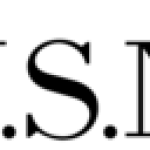- Отрасли: Government
- Number of terms: 11131
- Number of blossaries: 0
- Company Profile:
The dose received by a member of the public from exposure to radiation or to radioactive material released by a licensee, or to any other source of radiation under the control of a licensee. Public dose does not include occupational dose or doses received from background radiation, from any medical administration the individual has received, from exposure to individuals administered radioactive materials and released in accordance with 10 CFR 35. 75, or from voluntary participation in medical research programs.
Industry:Energy
An elementary nuclear particle with a positive electric charge located in the nucleus of an atom.
Industry:Energy
Production expense is one component of the cost of generating electric power, which includes costs associated with fuel, as well as plant operation and maintenance.
Industry:Energy
Privately owned knowledge or data, such as that protected by a registered patent, copyright, or trademark.
Industry:Energy
A radiation instrument in which an electronic detection system receives pulses that are proportional to the number of ions formed in a gas-filled tube by ionizing radiation.
Industry:Energy
A systematic method for assessing three questions that the NRC uses to define ?a href="/reading-rm/basic-ref/glossary/risk. Html">risk. ?These questions consider (1) what can go wrong, (2) how likely it is, and (3) what its consequences might be. These questions allow the NRC to understand likely outcomes, sensitivities, areas of importance, system interactions, and areas of uncertainty, which the staff can use to identify risk-significant scenarios. The NRC uses PRA to determine a numeric estimate of risk to provide insights into the strengths and weaknesses of the design and operation of a nuclear power plant.
Industry:Energy
A systematic method for addressing the risk triplet as it relates to the performance of a complex system to understand likely outcomes, sensitivities, areas of importance, system interactions, and areas of uncertainty. The risk triplet is the set of three questions that the NRC uses to define risk? (1) What can go wrong? (2) How likely is it? and (3) What are the consequences? NRC identifies important scenarios from such an assessment.
Industry:Energy
A tank or vessel that acts as a head tank (or surge volume) to control the pressure in a pressurized water reactor.
Industry:Energy
A strong-walled container housing the core of most types of power reactors. It usually also contains the moderator, neutron reflector, thermal shield, and control rods.
Industry:Energy
